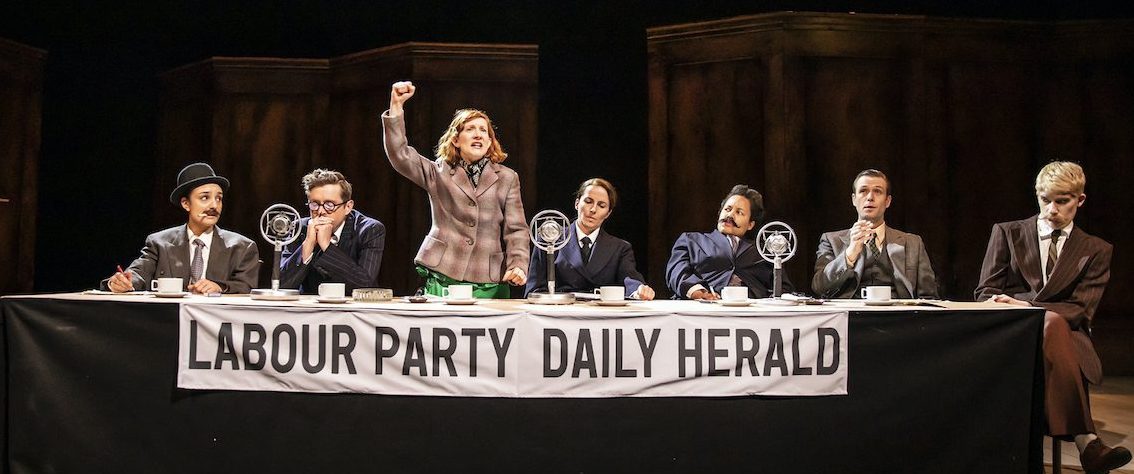Red Ellen tells the epic story of inspiring Labour MP Ellen Wilkinson, a figure and a story that certainly deserve to be much better known. The play follows the left-wing firebrand from the early 1930s through to her death in 1947. Despite passing away at only 55, and writer Caroline Bird’s decision to focus on only the last decade and a half of Ellen’s life, the sheer amount of action on show is overwhelming.
From dalliances with the Communist Party, through the Jarrow March and time in Spain during the Civil War, to a period spent in Winston Churchill’s wartime Cabinet and her last years spent as Minister of Education, Ellen Wilkinson packed more into 55 years than most people would in several lifetimes. It is easy to believe Bird’s statement that the first draft of Red Ellen was five hours long.
The amount of living Ellen did encapsulates both Red Ellen’s strength and weaknesses. The action and drama never stops, as Ellen (played by Bettrys Jones) dashes from one side of the stage to the other, from London to Prague, Spain to Jarrow.
A whirlwind of European history in the 1930s and 1940s flies past, much of which proves distressingly relevant today. An authoritarian regime marching on a peaceful country, fuel prices rising to unaffordable levels, the left riven by a debate between principles vs electability – all of these could have been written from today’s headlines. While this might sound rather weighty and earnest, it is leavened by a healthy dose of well-executed humour throughout.
However, in trying to pack absolutely everything in (even if the play is half the length of its original draft) it becomes exhausting and unfocussed. Ellen simply never stops running and railing against the world’s injustices which, while an absolute credit to her as a historical figure, makes for a somewhat unsatisfying dramatic experience. The writing too, in striving to make the historical relevance as clear as possible, is often too on the nose. The parallels are so obvious they don’t need the script’s heavy-handed reminders.
This exhaustiveness applies to Jones’ depiction of Ellen too. In many ways it’s a remarkable performance, as she is barely off the stage over the play’s two and half hour running time. It is easy to believe Ellen’s death at the end stems at least in part from overwork. Unfortunately, the pressure of this constant presence and energy quickly tells on the performance, which is lacking in subtlety and nuance.
A shorter, more focussed play might have allowed Jones more room to vary the pitch of her performance. Her strongest scenes come with her sister Annie (Helen Katamba) who brings some much needed subtlety and understated emotion.
It is easy to see why Red Ellen tries to pack so much in. Ellen Wilkinson was a truly remarkable woman who had a significant hand in British history through the 1930s and 1940s, literally working herself to death in the service of the British people. Unfortunately, the play would have been considerably stronger with a less-is-more approach, with a tighter focus that would have given this amazing woman the time and space to breathe.

